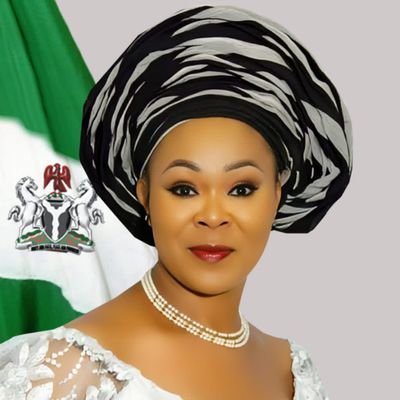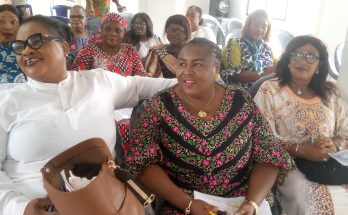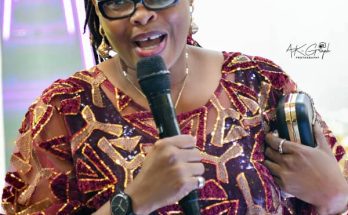In recent years, the issue of women representation in Nigerian politics has garnered significant attention, with calls for greater gender inclusivity being advocated. ENE OSHABA in this report examines the numbers and the positions held by women in President Ahmed Bola’s administration.
The numbers
As the country strives for progress towards gender equality, a critical examination of women’s participation in governance in the administration of President Bola Ahmed Tinubu becomes inevitable.
An analysis of the current administration reveals mixed pictures in terms of women representation. While progress has been made in some areas, there remains glaring disparities that underscore the need for further action.
According to available data, women hold approximately 17.78% of ministerial positions in Tinubu’s government. While some Nigerians believe that this representation is an improvement compared to previous administrations, it still falls short of the 35% affirmative action target set forth in the nation’s National Gender Policy.
The composition of President Tinubu’s ministerial nominees has not completely matched the proposal in his ‘Renewed Hope’ manifesto where he assured that he would push for legislation to increase women’s participation in government to at least 35% of all governmental positions.
Also, the representation of women in other key decision-making bodies, such as executive councils and boards of government agencies, remains inadequate. The underrepresentation of women in these crucial positions not only perpetuates gender disparities, but also limits the diversity of perspectives in policy formulation and implementation.
It was as a result of this that the national president, Federation of Women Lawyers (FIDA), Amina Agbaje, while speaking during a virtual stakeholders’ meeting organised by Women Radio 91.7 FM recently in commemoration of the two years’ landmark judgement on 35% affirmative action, lamented that the there were less women as ministers.
Agbaje maintained that there is a need to sustain and continue the demand for more women’s representation, stressing that their contributions to national development are too important to be ignored.
“If women were considered good enough to vote and campaign during elections, they should be considered good enough to be appointed into various political positions,” she said.
It becomes pertinent to note that unlike former President Goodluck Jonathan who achieved a 31% representation in 2011, the administrations afterwards have failed to achieve the 35% benchmark.
Positions
Beyond the numbers, it is essential to examine the types of positions held by women in Tinubu’s administration. While some women may occupy high-profile ministerial roles, the distribution of positions across various sectors of governance is uneven.
Only eight out of the 45 sworn in ministers are women, five of which their portfolios are the leading ministers, including Minister of Tourism, Minister of Industry, Trade and Investment, Minister of Arts, Culture and Creative Economy as well as the Minister of Humanitarian Affairs and Poverty Alleviation and the Minister of Women’s Affairs.
Others are Minister of State, Police Affairs, Minister of State for Labour and Productivity and the Minister of State, Federal Capital Territory.
Available statistics from the Alliances For Africa (AFA), an international African led non-governmental human right, peace and sustainable development organisation, noted that out of the 109 senators in the National Assembly, only nine are women, while only 27 out of the 360 members of the House of Representatives are women.
AFA said, “This picture clearly depicts a lopsided membership of the House in favor of the men. Women are still under-represented and obviously marginalised in democratisation in legislative and executive arms of government”.
“This trend flows from the national level, to state down to local levels where few women take the lead in local government chairman and councilors. Record also has it that no woman has ever become a president or a vice president.
“The only first female governor in Nigeria, Dame Virgy Etiaba, only functioned as Anambra state’s governor for six months, following the impeachment of her boss, Gov. Peter Obi, on November 2, 2006. Ever since then, the closest a woman has come in governance is deputy governor as we have the first female deputy governor of Rivers state, south-south Nigeria, Her Excellency, Dr. Mrs. Ipalibo Banigo.
“This is regardless of the fact that a National Gender Policy has been formulated to promote a 35 per cent affirmative action for women – a policy that demands 35 per cent involvement of women in all governance processes.
“The national Gender Policy (NGP) has formulated a 35% Affirmative Action in Nigeria since 2006. This policy demands that 35% of women be involved in all governance processes. The NGP is recognised, but is not practised as the structures and processes to use are not in place.”
Gender advocates believe that there is a pressing need to ensure that women are not only represented in leadership positions, but also given equal opportunities to contribute across all levels of government.
Additionally, the presence of women in non-traditional fields of governance, such as finance, defense, and infrastructure, is crucial for challenging gender stereotypes and promoting inclusivity. By breaking down barriers and expanding the scope of women’s participation and contributions.
Legal victory
In 2020, a coalition of Nigerian civil society organisations, led by the Nigerian Women Trust Fund, took a bold step by challenging the government’s inaction on the 35% affirmative action. With legal support from Falana & Falana Chambers, Nigerian women secured a historic victory on April 6, 2022.
This landmark judgement passed by passed by Justice Donatus Okorowo, affirmed the government’s obligation to implement the National Gender Policy, which had been adopted in 2006, but largely ignored. He accused past governments of acting in breach of international treaties on women participation in government.
The court judgement upheld and mandated the implementation of the provisions of the National Gender Policy (2006) on 35 per cent affirmative action in appointive positions.
The court also upheld the equality of the sexes and the constitutional mandate to recognise gender in all appointive positions, meaning that Nigerian women are now accorded 35 percent affirmative action as a matter of right in line with democratic ethos.
Though this victories for Nigerian women were widely celebrated for shaping a Nigeria that is truly democratic, three months later (July 6 precisely) the matter was appealed by the Federal Ministry of Justice Abuja, in contradiction to President Muhammadu Buhari’s acceptance of the judgement through the Minister of the Federal Ministry of Women Affairs.
AFA maintained that Nigeria as a member of the United Nations signed and ratified the various relevant international instruments, treaties and conventions without reservation.
AFA further explained that these instruments have always emphasised that member nations put in place all the necessary mechanisms needed to eliminate gender discriminations, ensure0 equality and human dignity to all, men and women.
“The National Gender Policy is not merely a policy statement, but one that must be backed with requisite action on the part of the government, noting that the 35% affirmative action which entails appointive positions for women ensures inclusivity and must not be merely on paper,” said Justice Okorowo.
Stakeholders’ appeal
Stakeholders and civil society organisations have therefore called on President Tinubu to do more for women. The call was made at a media dialogue organised in commemoration of the two years landmark judgement on 35% affirmative action, a case won by Nigerian women with pro bono support from Falana and Falana Chambers.
Speaking at the dialogue, Rasheedat Medupin, of Sustainable Gender Action Initiative (SGAI), stated that the government needs to partner with civil society organisations to intensify efforts to implement the 35% affirmative action and also make Nigeria a nation where women’s voices are heard.
Medupin, who appealed to the Tinubu-led government to uphold the judgement of 6 April 2022, by appointing more women into positions, added that Nigeria needs to accept women as accomplished leaders and ensure that gender policies are implemented.
According to Barrister Marshal Abubakar of Falana & Falana Chambers, the government must be reminded to obey the rule of law of judgement of 6 April 2022.
Abubakar urged Nigerian women to go back to court to get the judgement enforced should the Tinubu administration fail to uphold the judgement, while also calling for the need to engage with stakeholders at the national assembly to canvass for constitutional amendment to allow women occupy more seats.
Another speaker at the media dialogue Ngozi Nwosu-Juba of Vision Spring Initiatives emphasised the need to involve more women at grassroots and return back to court to get the judgement enforced.
Nwosu-Juba recommended that the ongoing constitutional review should be taken advantage of to revisit the 5 gender bills to make up for the lack of women in governance.
On her part, Zainab Yahaya Tanko, of Nigerian Women Trust Fund, stated that women have the numbers and must be adequately represented, while also calling for the need to intensify efforts until the judgement is implemented.
The consensus of the media dialogue is that the government must implement in full its own National Gender Policy that has been further made mandatory through the 6 April 2022 landmark judgement in favour of Nigerian women.
Action
As Nigeria undergoes constitutional review, there is an opportunity to revisit gender-related legislation and ensure the full integration of women in governance. This moment calls for unwavering commitment from all stakeholders to uphold women’s rights and create a more equitable society.
The two-year milestone of the 35% affirmative action judgment serves as a reminder of the ongoing struggle for gender equality in Nigeria. While progress has been made, significant challenges remain.
A statement signed by the Nigerian Women Trust Fund (NWTF) and Co-plaintiffs Women Empowerment and Legal Aid (WELA), Centre for Democracy and Development (CDD-West Africa), Women Advocates Research and Documentation Centre (WARDC), Vision Spring Initiatives (VSI), Women in Politics Forum (WIPF), Yiaga Africa Initiative, International Federation of Women Lawyers (FIDA) and the 100 Women Lobby Group, demanded the implementation of the judgement of the court by the President Tinubu in all appointive positions in his cabinet.
“We call on him to set up implementation framework for the enforcement of this landmark judgement and we demand for all parastatal, agencies and ministerial appointments to henceforth be in compliance with the National Gender Policy.
“We further demand that the 10th Assembly acknowledge that truly Nigerian women are equal citizens in Nigeria whose rights deserve to be honored by passing all the gender related bills hitherto before the 9th Assembly.
According to the statement, there is the need to intensify advocacy for inclusiveness in Nigeria at the national, state and at the local government level especially after the poor representation of women emerging from the just concluded 2023 general elections.
President Tinubu’s administration faces a critical test: will it rise to the occasion and champion the cause of gender equality or will it perpetuate the status quo? The answer lies in tangible actions that prioritise women’s empowerment and representation in all spheres of public life.
Tinubu has a unique opportunity to demonstrate leadership and commitment to advancing women’s rights by prioritising women’s representation in governance and implementing the National Gender Policy. His administration can pave the way for a more equitable future for all Nigerians and the time for action is now.




